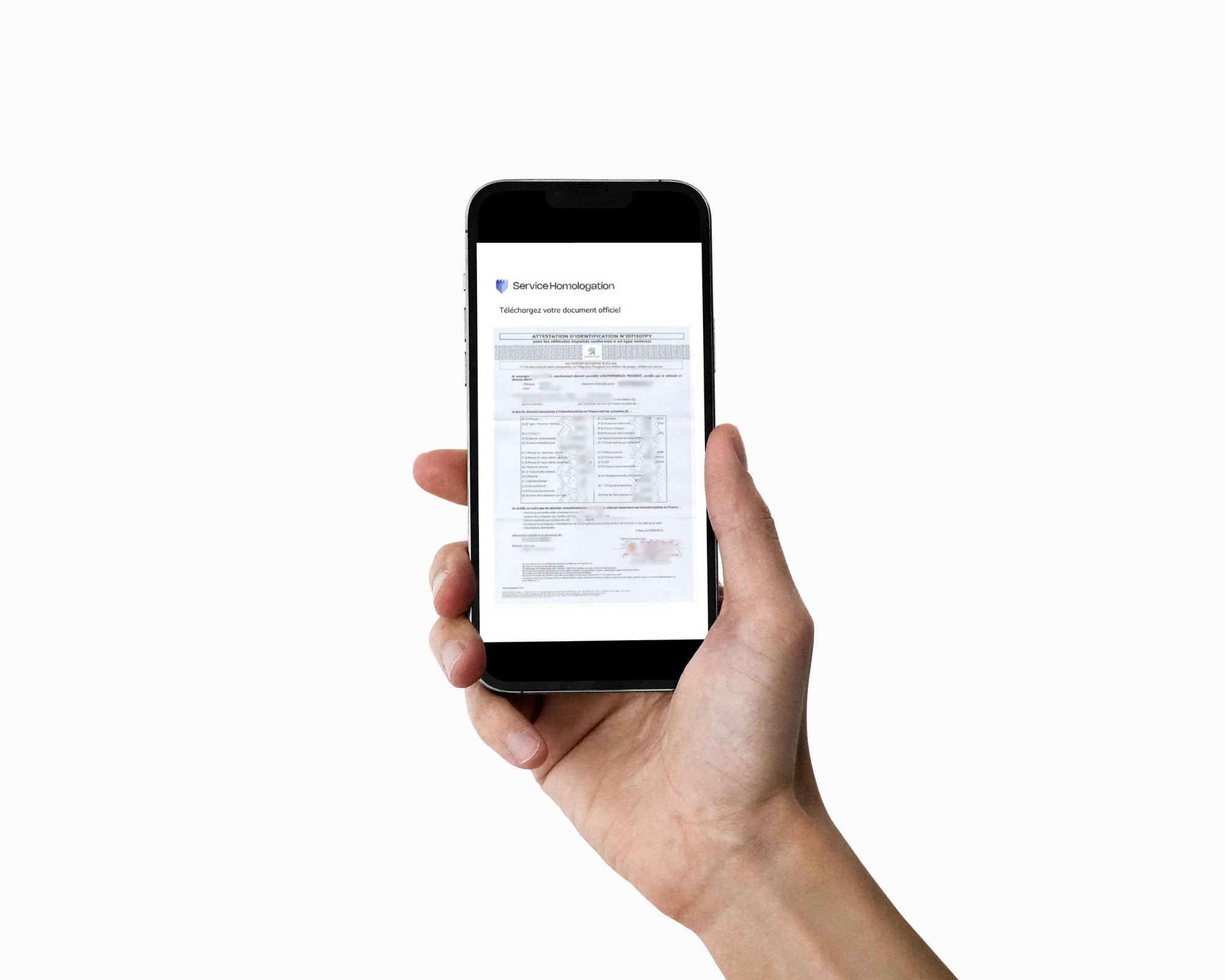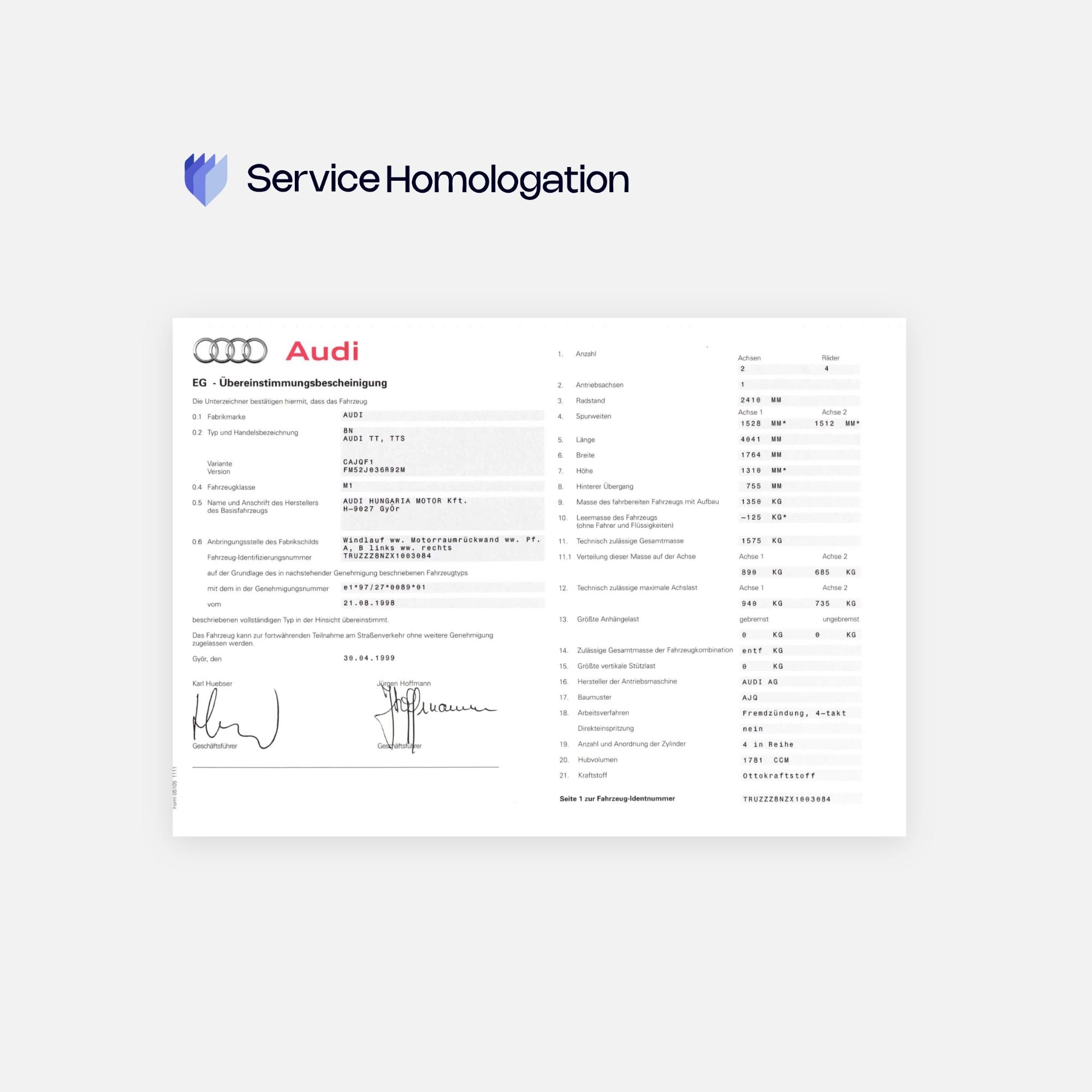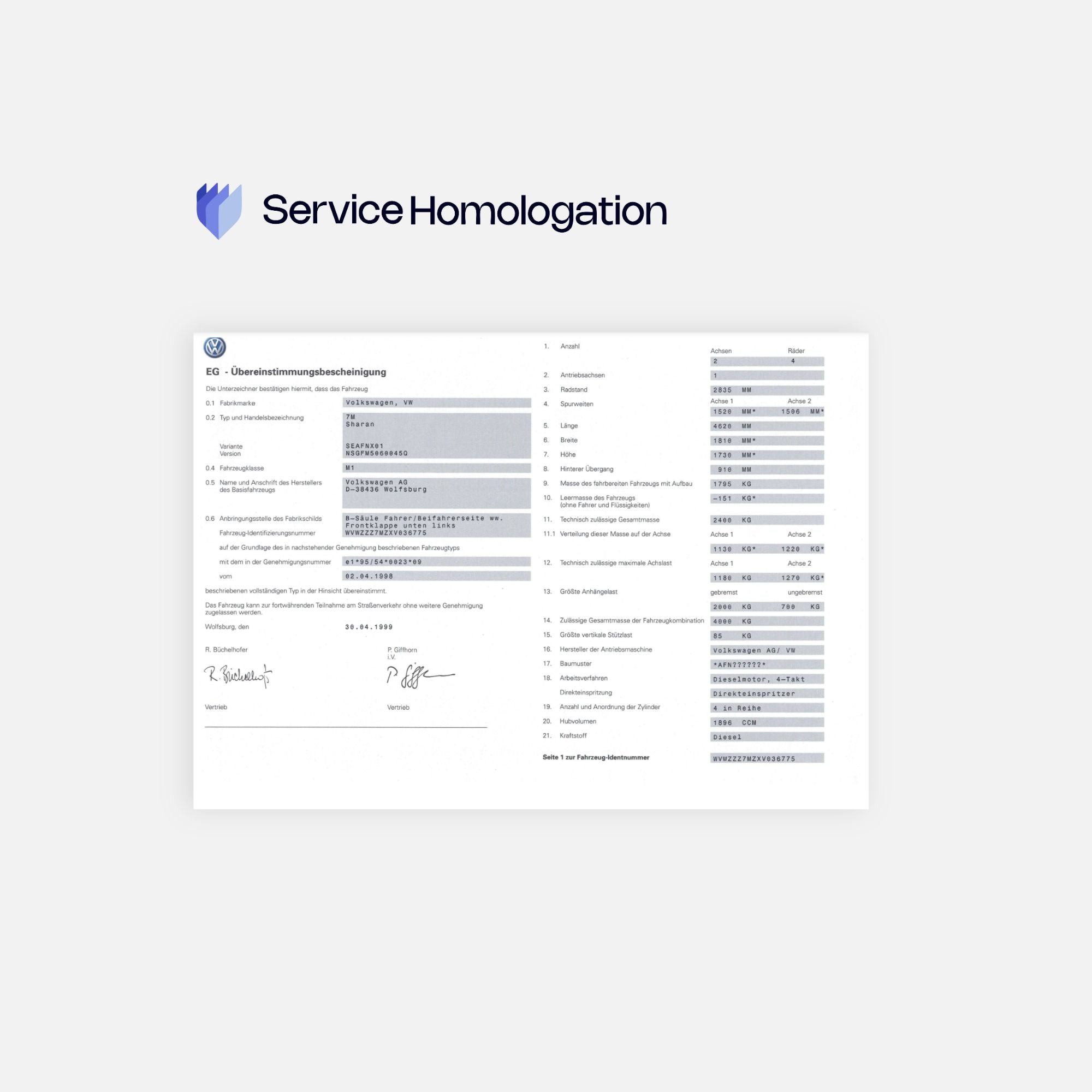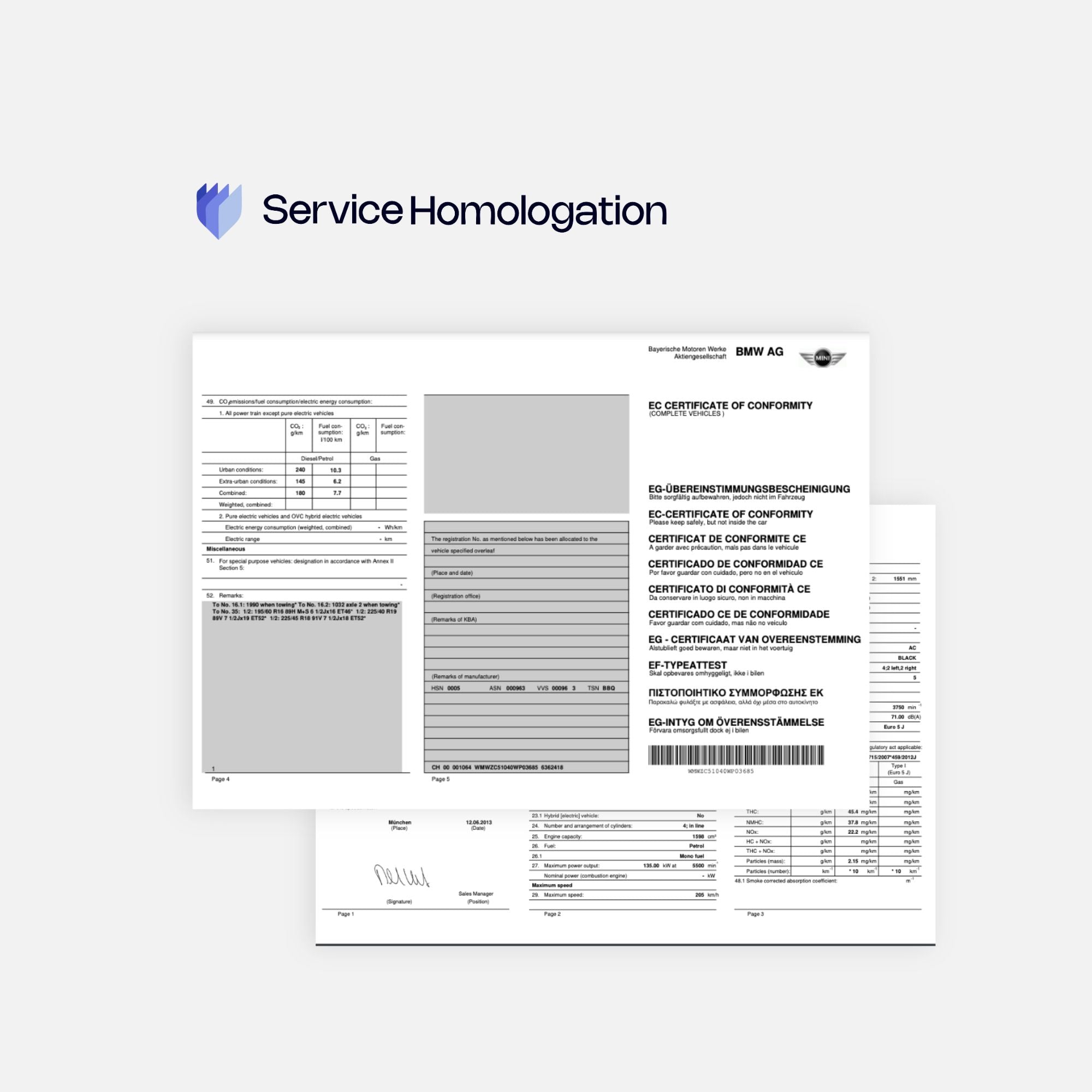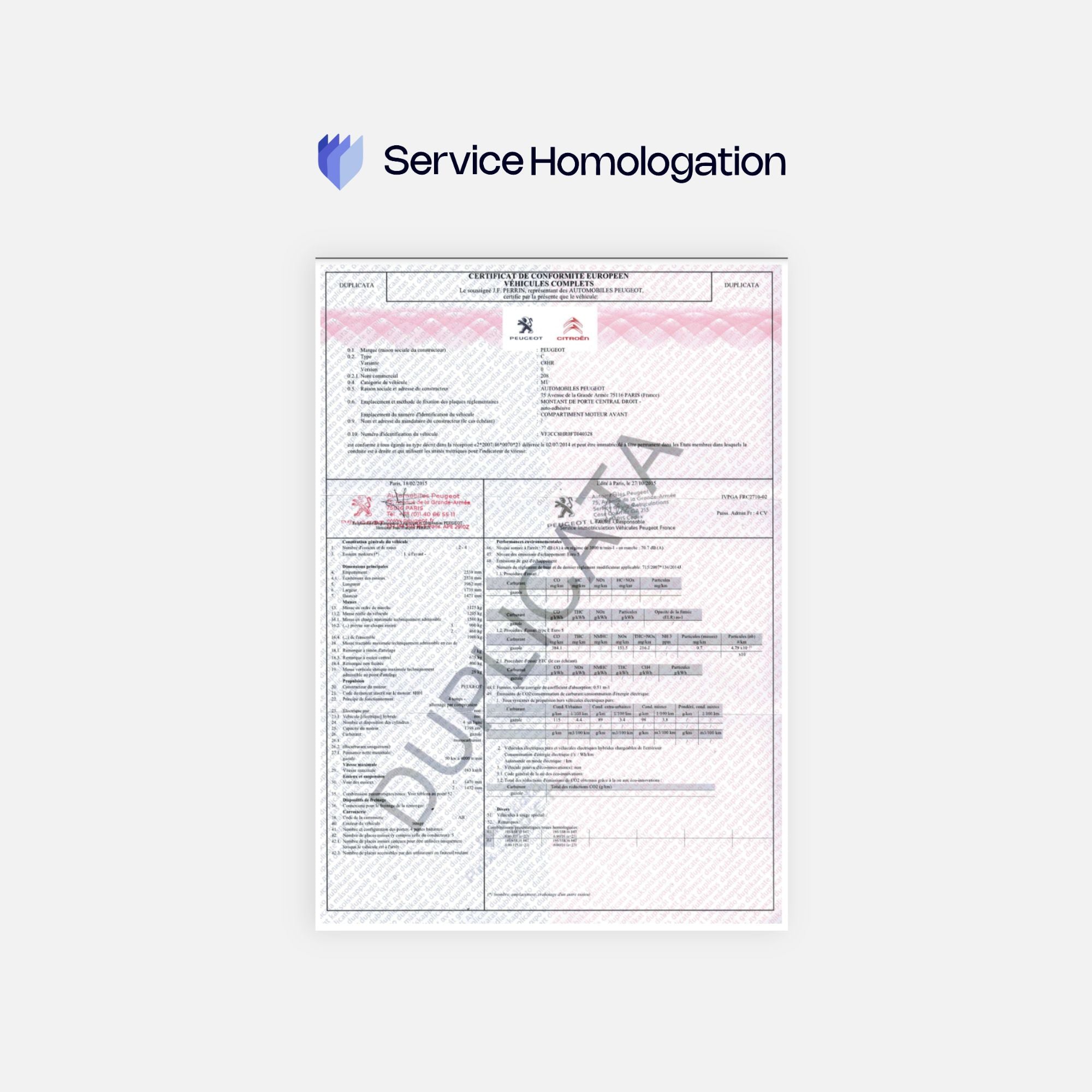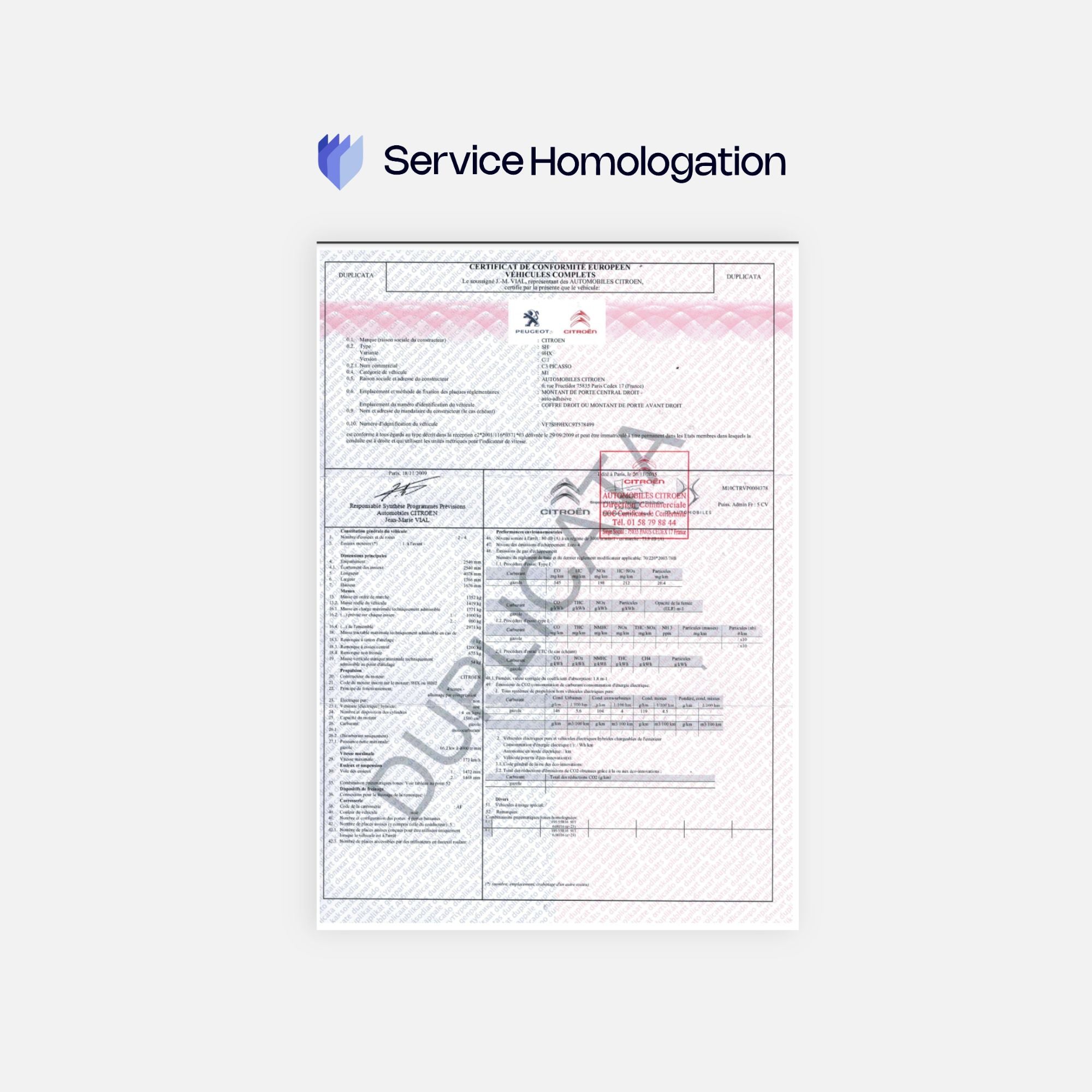Why is a car certificate of conformity essential?
A car's certificate of conformity is a fundamental document in the administrative process for any vehicle. This valuable document, also known by the acronym COC (Certificate of Conformity), certifies that your vehicle complies with the technical and environmental standards in force in France and Europe. Whether you own an imported car or are considering purchasing a vehicle abroad, understanding the steps involved in obtaining this document will save you a lot of hassle.
Today, we'll explore the key steps to obtaining this essential document for registering your vehicle in France. If you own a Buick and are specifically looking for information on this brand, you should know that specific solutions for Buick certificates of conformity exist to make your process easier.
When do you need a certificate of conformity?
The car certificate of conformity becomes essential in several situations. According to Jean Martin, an expert in automotive homologation , "the most common cases concern the importation of a vehicle from abroad, whether new or used." But that's not all - you will also need it when registering for the first time in France, after purchasing a new, unregistered vehicle, or if you have misplaced the original registration document.
Manufacturers such as BMW, Mercedes, and Toyota automatically issue a European COC for vehicles sold on the EU market. However, for vehicles from non-European markets, particularly specific American or Asian models, a special approval procedure is required.
The different types of certificates of conformity
There are mainly two categories of certificates that you need to know about:
The European COC applies to vehicles that are already approved according to European standards. This multilingual document is recognized in all European Union countries, which greatly facilitates cross-border procedures. According to Sophie Dupont, automotive regulatory advisor, "this harmonized document represents a major step forward for the free movement of vehicles within the European area."
The individual identification certificate is required for vehicles that do not have original European approval, such as certain American or Japanese models. This more complex procedure often requires the intervention of an expert approved by the DREAL .
How to obtain your certificate of conformity?
The procedure to follow depends on the type of vehicle you have:
For a European vehicle, contact the manufacturer or its official representative in France directly. Have the full serial number (VIN) and all technical specifications of the vehicle ready. Processing times generally vary between 2 and 4 weeks, although some online services now offer expedited procedures.
For a non-European vehicle, the process is more elaborate. You will need to gather comprehensive technical documentation and sometimes have European standards compliance tests carried out. Using a specialist homologation service can considerably simplify these often complex procedures.
Documents required for your application
To prepare a complete file, prepare:
- Copy of the foreign registration certificate
- The complete vehicle identification number (VIN)
- A copy of your identity document
- Detailed technical characteristics of the vehicle
- Proof of purchase of the vehicle
Registration officers recommend carefully checking the consistency between the information provided and the actual characteristics of the vehicle, as any discrepancy may result in rejection of the application.
Costs and timescales to be expected
The price of a certificate of conformity varies considerably depending on the vehicle make and model. For a standard European vehicle, expect to pay between €100 and €300. For more exotic or older models, prices can exceed €500, especially if additional testing is required.
As for processing times, they generally range from 2 weeks to 2 months. Emergency services, offered by some providers, sometimes allow you to obtain the precious document in just a few days, for an additional fee.
Avoid common pitfalls
Beware of overly attractive offers online. Unscrupulous platforms sometimes offer certificates at bargain prices, but these documents may not comply with legal requirements. Purchasing a certificate of conformity from unauthorized intermediaries can lead to complications during registration and even legal action.
Legitimate car manufacturers and their representatives remain the most reliable sources for obtaining these official documents.
Conclusion: Simplify your procedures with the right partners
Obtaining a vehicle certificate of conformity is an essential step in many administrative procedures related to your vehicle. Although the process may seem complex at first, careful preparation and choosing reliable partners will significantly simplify your journey.
Do not hesitate to seek the help of automotive homologation professionals to assist you in this process, particularly if your vehicle has specific characteristics or comes from a market outside the European Union. For personalized and expert service, our team remains at your disposal to facilitate the obtaining of your
